#postcolonial studies
Text
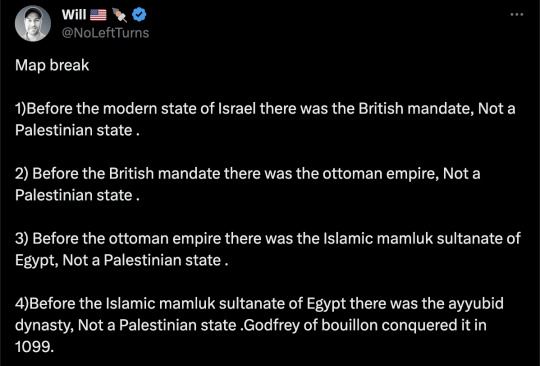

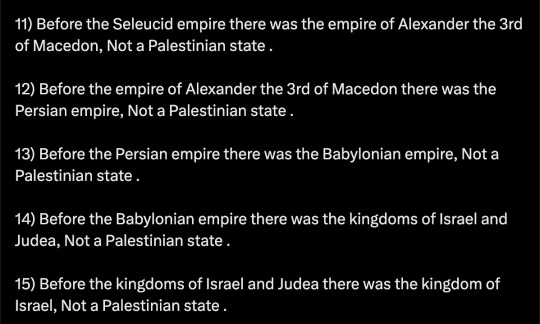
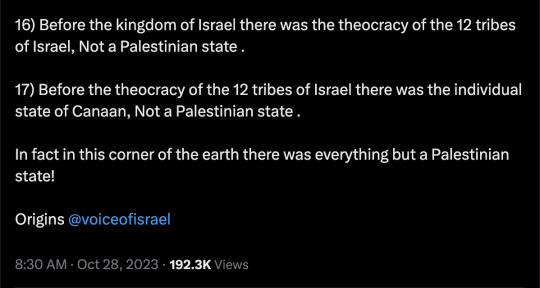

==
Hissing "colonizers" when you don't know the first thing about history or geography is exactly the kind of first world luxury belief you get when you take Postcolonial Studies or Gender Studies instead of, well, history or geography, or anything based on facts instead of ideology.
The absolute state of US history and geography education.
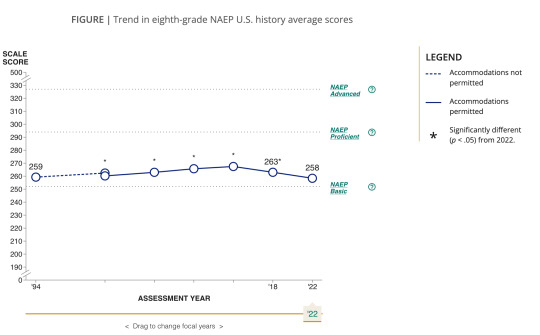
[ Source: Nation's Report Card ]
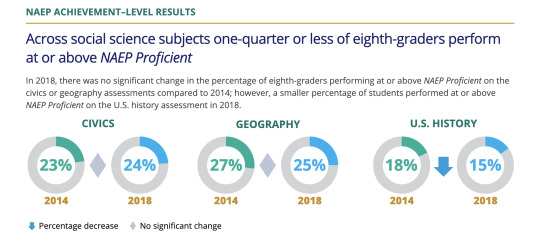
[ Source: Nation's Report Card ]
And this just for US geography and history, never mind the much larger field of international geography and history.
#faith based beliefs#stupid people#Palestine#Israel#Gaza#Gaza Strip#first world ignorance#luxury beliefs#indoctrination#colonization#colonialism#postcolonial theory#postcolonial studies#gender studies#palestinian state#religion is a mental illness
17 notes
·
View notes
Text
6th of March 2024
Getting closer to scope down on a topic for one of the two longer assignments (20 pages) I have to write.
I want to write about Shahrazad and how philosophers see her as an embodiment of the idea that "to live is to narrate"; and how postcolonial arab writers and artists reclaim Shahrazad from Western interpretation to regain agency and authorship over themselves ("narrate or be silenced").
1 note
·
View note
Text
Am reading a book on rhetoric and imperialism, and holy shit I knew Charles Darwin would be racist but good god.
"Their voices discordant, their gestures violent and without dignity."
"without dignity"
This module is so interesting but ding dang if it doesn't bring out the ANGER.
#postcolonial studies#or anticolonial studies#is such an interesting subject#but the fact that all this shit happened and that these were 'commonly held' views is so depressing#colonizers interfered with entire systems of life and then#when the colonizers were eventually driven out of the countries#they called out the countries for failing at upholding their colonial systems#i swear the number of essays i could write on this subject in sheer spite for the history it made
1 note
·
View note
Text


Naipaul first visited India in the 1960s, a journey that "broke his life into two" — the same decade as when he extensively travelled the postcolonial ‘Third World’. This is articles from those years. A clinical and moving bunch on the impossibility of decolonisation and the long shadow of empires; on his encounter with India in a decade of famine, war, drought, and reform; a fragmented country "without even an idea of a graded but linked society"; on the teeming mass of former ‘colonials’ who can’t help but seek out a metropolitan life.
Loved this to bits.
#booklr#books#stuydblr#coffeeblr#study aesthetic#bookstagram#decolonization#v s naipaul#reading#postcolonialism#india#study space#coffee aesthetic#book quotes#book photography#studyspo#academia#historyblr#gradblr
466 notes
·
View notes
Text
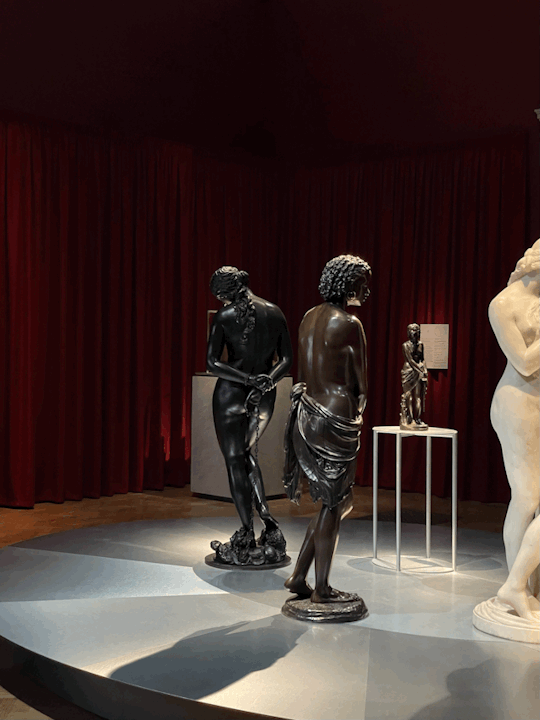

Statues and busts in the 'Entangled Pasts, 1768–now: Art, Colonialism and Change' exhibition at the Royal Academy of Arts
#studyblr#studygram#studyspo#bookblr#books#study#bookstagram#booklr#london#art#colonialism#postcolonialism#postcolonial theory#artwork#abolition#abolitionists#exhibition#gallery#royal academy of arts#royal academy
68 notes
·
View notes
Text
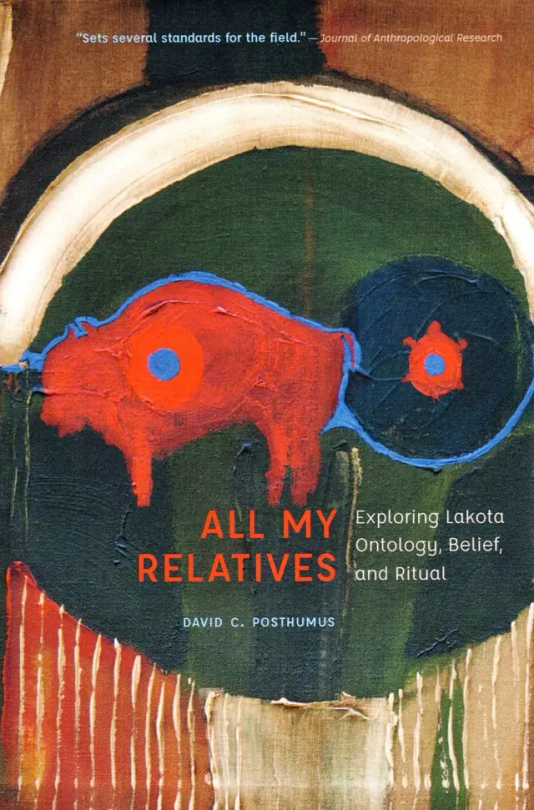

All my relatives: Exploring Lakota ontology, belief, and ritual. Posthumus DC (2022)
This is a book all about Lakota traditional beliefs and therefore has a lot of information connected to Mitakuye Oyasin. “At the heart of both Lakota religious continuity and innovation is an underlying animist ontological orientation, a basic way of seeing, understanding, and being in the world that extends personhood— in the form of a soul or spirit— to nonhuman life- forms.” This is expressed with ‘Mitakuye Oyasin’ –meaning ‘all my relatives’ or ‘we are all related’, which refers not only to human kinship but also to the relationship shared by all life-forms, both human and nonhuman, and the reciprocal obligations, responsibilities, and mutual respect that naturally extend from it” (14).
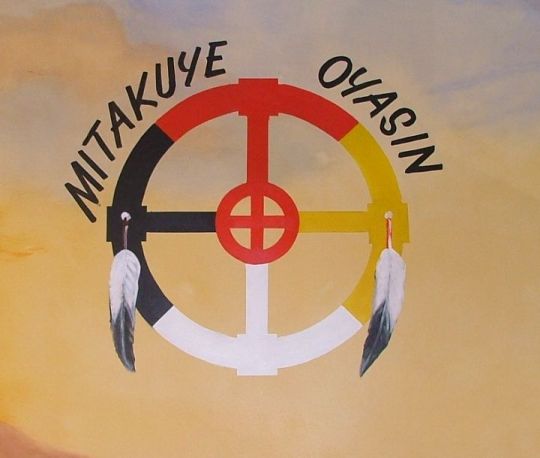
This repeats much of the ideas from similar definitions: belief in the connection between all life, relationships, the power the phrase has. It also gives a lot of words to help define these beliefs in academic language. Another important thing to point out is the way mitakuye oyasin is recognized as being part of Lakota innovation; my goal here is to use mitakuye oyasin to an innovation of queer ecology–hopefully add to the conversation.
“The normative cultural values encompassed by mitákuye oyásʾį are the very foundation of kinship, relational ontology, and the overarching interspecies collective, of which humans are only one hoop, one oyáte ‘people, nation, tribe’, in the company of many others. The key constituents of this animist ontology and worldview, of mitákuye oyásʾį, are persons, a category that extends beyond human beings to nonhuman or other- than- human persons. [...] Importantly, the Lakota worldview sees humans as the least knowledgeable and powerful beings, requiring the most aid and pity, upending the common Western biblical assumption that humans have dominion to rule over all other life- forms and subdue the earth (see V. Deloria 1999, 50; 2009, 99– 100). For the Lakotas, the seed of all life is wakʿą ‘sacrality, mystery, divinity’; ́ hence all life- forms share a generalized interiority, whether human or nonhuman.”
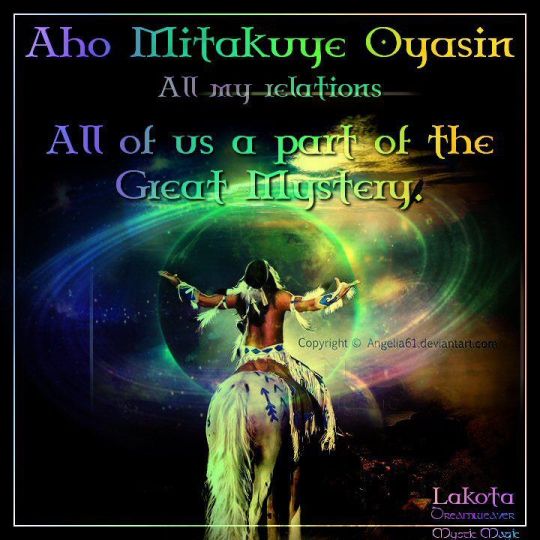
This is important information to support my argument. Queer ecology is very critical of Western beliefs and dichotomies that separate humans from nature and thereby present mankind as the ultimate lifeform (anthropocentrism). There are many essays and articles that examine the influence Christianity has had on the colonialist project (Gaard is the first that comes to mind). The Lakota worldview of being the ‘younger siblings’ of creation are supported by science in that ‘humans’ as a 'species' haven’t existed all that long in comparison to other 'species' and like many indigenous cultures, Lakota people knew the key to knowing nature was to learn from the world around us, as the author later confirms:
“Deloria explains that “the oldest traditions say that humans learned politeness and courtesy from the animals. . . . Generations of elders had already observed the behavior of birds . . . and decided that emulating them was the proper way for humans to act” (V. Deloria 2009, 123). Standing Bear (2006a, 56) substantiates this, writing, “The Lakota enjoyed his association with the animal world. For centuries he derived nothing but good from animal creatures. From them were learned lessons in industry, fidelity, and many virtues and much knowledge.” (50-51)
In the author’s footnotes is Vine Deloria’s examination of mitakuye oyasin that is, I feel, a great support of my claim:
“Vine Deloria refers to mitákuye oyásʾį as the ‘Indian principle of interpretation/observation,’ calling it “a practical methodological tool for investigating the natural world and drawing conclusions about it that can serve as guides for understanding nature and living comfortably within it. . . . We observe the natural world by looking for relationships between various things in it. . . . This concept is simply the relativity concept as applied to a universe that people experience as alive and not as dead or inert” (1999, 34). (Posthumus 2022 p219 f)
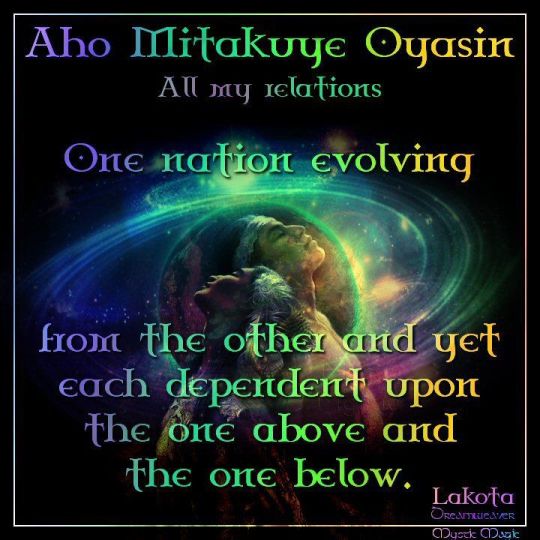
Queer ecology’s goal in many ways is to critique the ways the Western scientific paradigm has created inequity. Many are seemingly searching for solutions and answers to the problems that have been perpetuated by the colonial empire, supported as it is by western science.
While we must always, always be careful of appropriation and misappropriation–I contend that the solutions are not ones that need to be ‘discovered’ or solved in the way that Western science is so often searching for–advancement, the future…but rather, the answers are in what has always been there…and it’s simply a matter of observation.
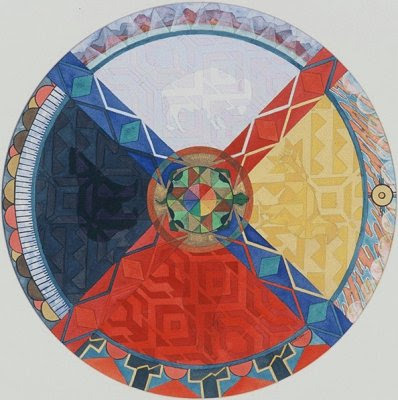
#queer ecology#mitakuye oyasin#queer theory#ecofeminism#critical ecology#colonialism#all my relatives#lakota#indigenous studies#postcolonial theory#ecology#science#traditional ecological knowledge#queering ecology#ecosystems#environment#social ecology#long post
21 notes
·
View notes
Text
As a fact of history and problem of contemporary geopolitics, Russia’s nature as an imperial power is incontrovertible. After World War I, the Russian Empire avoided the permanent dismemberment that befell other multi-ethnic land empires, such as the Ottoman Empire and Austria-Hungary. The Soviet Union not only reconquered most of the non-Russian lands that had declared independence from Moscow in the wake of the 1917 Bolshevik Revolution (including Ukraine, Belarus, Georgia, Armenia, and Azerbaijan)—but even expanded the empire in the course of World War II, annexing Moldova, the western part of Ukraine, and other lands. Nor did the Soviet Union participate in the decolonization era. Even as the French and British empires were being dissolved, the Soviet Union was expanding its colonial reach, tightening its grip deep into Eastern and Central Europe with bloody crackdowns and military actions.
[...]
During the Cold War, Western universities, research institutions, and policy think tanks opened numerous centers and programs for Soviet, Russian, and Eurasian studies in a bid to better understand the Soviet Union and its heritage. However, these efforts had a strategic flaw: Born in an era when Moscow’s control reached far beyond today’s Russian borders, these programs inevitably framed the region through a Moscow-centric lens. Today, even as they dropped “Soviet” from their name, most of these programs have inherited this old Moscow-centric framing, effectively conflating Russia with the Soviet Union and downplaying the rich histories, varied cultures, and unique national identities of Eastern Europe, the Baltic States, the Caucasus, and Central Asia—not to mention the many conquered and colonized non-Russian peoples inhabiting wide swathes of the Russian Federation.
[...]
In many cases, Western academic programs require students to study the Russian language—often including courses in Moscow or Saint Petersburg—before they have the option of studying any of the region’s other languages, if they are so inclined and if those languages are even offered. A similar problem affects cultural studies, including literature and art, where the many ways Russian works—including the classics read by countless high school and university students—transport Moscow’s imperial ideology are rarely addressed. This only perpetuates the habit of looking at the former Soviet-controlled and Russian-occupied space through the prism of the world’s last unreconstructed imperial culture. Unwittingly, today’s Russia studies in the West still replicate the worldview of an oppressor state that has never examined its history and is nowhere near having a debate about its imperial nature at all—not even among the Russian intellectuals or so-called liberals with whom Western students, academics, and analysts generally interact and cooperate.
Finally, Western academia also presents Russia itself as a monolith, with little or no attention paid to the country’s Indigenous peoples. By now, many who study Russian history are at least vaguely familiar with the Stalin-era genocide of the Crimean Tatars and their replacement on the peninsula by Russian settlers. But why not shed more light on the Russian conquest and subjugation of Siberia, one of the most gruesome episodes of European colonialism? Or Russia’s 19th-century mass murder of the Circassians, Europe’s first modern-era genocide? What have we learned about the short-lived Idel-Ural state, a confederation of six autonomous Finno-Ugric and Turkic republics crushed by the Bolsheviks in 1918? Why not highlight Tatarstan, which proclaimed its independence from Russia in 1990? Nascent efforts to give Russia’s Indigenous peoples a voice have gotten underway, including the Free Peoples of Russia Forum that last convened in Sweden in December 2022—but they have hardly registered in Western academia. Not only are Western scholars’ interests and relationships Russia-centric; within Russia, those relationships and contacts are Moscow-centric. It’s as if Russia’s highly diverse regions didn’t exist.
#russia#russian culture#russian inmperialism#slavic studies#slavic tradition#slavic culture#decolonisation#postcolonialism#imperialism#rashism#rushism#academia
196 notes
·
View notes
Text

this semester's reads (spring '24)
#bookblr#book lover#diverse reads#diverse representation#my photos#my post#black representation#octavia butler#borderlands#latinx reads#english class#postcolonial decolonial literature#borders race and literature#classic reads#classic books#latine reads#english major#womens gender and sexuality studies#mexican american studies#english studies#books#books and reading#books and literature#university student#university studyblr
10 notes
·
View notes
Text
wiiiiiiiiiho im taking two more film courses in the spring:)))))
#one on gender in film and another on postcolonial perspectives#a part of me is a lil sick of studying since i did my bacherlors degree. another part of me is very very excited#i can never make my mind up
12 notes
·
View notes
Text
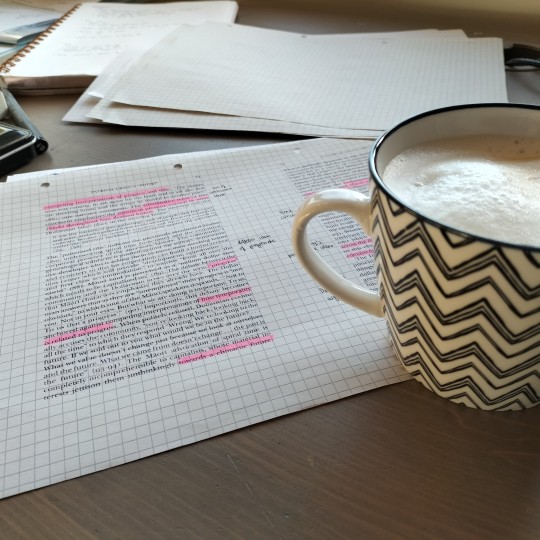

November 8th, 2022
Today it's hard to focus, I should go to bed earlier. I forgot time while painting yesterday. So I hope today I'll make a better decision.
#mine#studyblr#100 days of productivity#study#studyspo#phd life#phdblr#notes#literature#postcolonial theory#poco phd
120 notes
·
View notes
Text
March pick: Envisioning African Intersex pt 2
Continuing our trend of alternating between fiction and non-fiction, our pick for March is the second half of Envisioning African Intersex: Challenging Colonial and Racist Legacies in South African Medicine, by Amanda Lock Swarr.

This is an academic text, so we won't be reading the whole thing! The book is split into two parts, one on colonial history and one on resisting colonial intersexism. To make things manageable we will be reading only the second part! There are three substantive chapters and an epilogue:
Chapter 3: Defying Medical Violence and Social Death, Sally Gross and the Inception of South African Intersex Activism
Chapter 4: #HandsOffCaster: Caster Semenya's Refusals and the Decolonization of Gender Testing
Chapter 5: Toward an "African Intersex Reference of Intelligence": Directions in Intersex Organizing
Epilogue: Reframing Visions of South African Intersex
Like most academic books, each chapter is a self-contained unit. You can pick and choose which chapters to read, and read them in whichever order you choose. (Starting with the epilogue is a common tactic!)
To ensure everybody has access to the book, a pdf copy is available through the discord.
Content notice: as you might expect, this book will discuss intersexism, colonialism, and racism.
When we're meeting
We will be meeting to discuss the four chapters on Fri Mar 29, at:
- 12:30-14:00 Pacific (Vancouver, San Francisco, etc)
- 15:30-17:00 Eastern (Toronto, New York, etc)
- 21:30-23:00 Central European (Berlin, Paris, etc)
for more time zones see here
To join the discord: https://discord.gg/U8ZucKwGPK
Also see: our code of conduct
How much of the book do you need to read?
You don’t need to finish all four chapters to participate! You are welcome to skim and/or skip chapters as desired.
Current & future book picks
If this isn’t in the cards for you, we’re reading sci-fi short story collection The Trans Space Octopus Congregation for April!
#intersex book club#book picks#intersex books#intersex studies#queer theory#gender studies#postcolonialism#postcolonial literature#post colonial studies
3 notes
·
View notes
Text
youtube
The Gospel According to Berkeley
Mary: What? More visitors?
Professor: Greetings Joseph and Miriam from Nazareth. The Star of Bethlehem and GPS showed us the way to your door. Allow us to introduce ourselves: we are three wise men from the West.
Kelcy: Okay, um, three wise persons.
Professor: Of course. May we enter?
Wordle: Love the decor. Very earthy.
Kelcy: Yes, so sustainable.
Professor: Oh, yes, what are these walls? Tadelakt?
Mary: I'm sorry but it's really late. I just had a baby.
Joseph: Yeah, and we we already had a visit from the three wise men from the East. they just left, so maybe it's not a good time.
Professor: With all due respect to these Eastern "wise men," we're from Berkeley.
Joseph: Okay. Anyway, they give us their blessing and they told us that our newborn son will be the King of the Jews.
Professor: The Jews? King of the Jews? What, what do you mean Jews?
Wordle: I don't see anything Jewish here.
Professor: You have to understand, Jews will only come to this land 1,948 years from now.
Kelcy: As a colonialist power!
Professor: Oh, I see someone's been listening this semester.
Kelcy: True.
Joseph: What do you mean? We are Jews!
Professor: No. No, you're not.
Mary: So what are we?
Professor: You are Palestinians, of course.
Wordle: That drip is fire.
Mary: Palas... what?
Professor: Palestinians, the indigenous inhabitants of this land. In the beginning, God created the Heaven, the Earth and Palestinians.
Mary: Oh wait, so my baby is also Palestiniman?
Professor: Of course. And you don't practice Judaism, you practice Islam.
Wordle: Allahu Akbar, man.
Kelcy: So Akbar.
Joseph: What is Islam?
Professor: I'm sorry, that's a very islamophobic question.
Kelcy: Actually, it makes me feel unsafe.
Joseph: So, wait a minute. Our baby will be the King of the Palestinians?
Professor: Exactly. Too bad he'll be dead at a very young age because he'll be murdered by the Jews.
Joseph: Oh, my god.
Kelcy: Um, excuse me, Professor? Uh, so there are Jews living here?
Professor: No, no, no, no, no, no, no. Only Palestinians.
Wordle: Oh. So the Palestinians will kill Jesus?
Professor: No, no. No Palestinian would ever hurt anyone. Never. Especially not Hamas.
Wordle: Wait. I don't understand.
Professor: Okay, guys this is exactly what our next class is about, alright? How did the Jews kill Jesus without even existing? It's going to be fun, alright? Don't worry about it.
Wordle: Wow, it's so worth 54 grand a year in tuition.
Professor: Right?
Kelcy: Exciting.
Professor: Anyways, congratulations on your definitely not Jewish baby boy.
Kelcy: Yay! Woo! Can we go visit Santa in the North Pole?
Professor: North Palestine. North Palestine. Santa is a Palestinian too!
Kelcy: Santa hu Akbar!
Professor: Very good.
Kelcy: Ho, ho, ho.
Joseph: What the hell was that?
Mary: Jesus...
==
This sort of ahistorical revisionist bullshit is taught as indisputable fact in bogus ideological domains, like Postcolonial Studies and Palestine Studies. It's no more true than that two million Israelites were enslaved in Egypt and escaped across the desert. Their continuous presence in the region is well documented.
#Eretz Nehederet#pro hamas#hamas supporters#palestine#pro palestine#palestinians#indigenous inhabitants#israel#Bethlehem#Judea#historical revisionism#colonialism#fake history#terrorism supporters#postcolonialism#postcolonial studies#palestine studies#religion is a mental illness
4 notes
·
View notes
Text
"we don't have to look at all fiction through a political lens! why does everything have to be political."
i hope Edward Said's ghost haunts you tonight when you're sleeping.
also, idk??? try to look at what literary studies and comparative literature is actually arguing outside of your tumblr dash. oh my god.
#mari.txt#i'm so done#also everything is political#yes even fanfiction is political#grow a brain and touch grass#sometimes i think i don't belong on this website#i take postgrad seminars dedicated to postcolonial literary analysis where everyone there has been studying literature for years—#and this is considered common fucking sense#and then i come on here and see the dumbest takes ever uttered in human history by ppl infected with stan culture dumbassery
2 notes
·
View notes
Note
Hi! I was interested in your comment about watching the new season through a postcolonial lens, but I didn't really understand what postcolonial meant – although I'd heard the term before. I think I understand it now (thanks YouTube!), but I'm not sure how it connects to watching the show. Do you mind giving an example?
Just spent a good 20 minutes digging for some tags where I recommended The Wretched of the Earth and Discourse on Colonialism to get familiar with postcolonialism.
UPDATE: I found it!
Best I can offer is this idea I've been toying with since I first watched the show: if you consider Frantz Fanon's argument that decolonization at a societal level inevitably must include violence in order to be achieved, could OFMD's Blackbeard's criminal enterprises be considered part of a decolonial struggle? Why or why not?
Of course, to be able to engage in that line of inquiry, you gotta get familiar with Fanon's theory of violence for colonial subjects, which I think the linked article does a good job of summarizing!
Stuff like that.
#thank you for the ask!#hablanndo#postcolonialism#ask#putting this in#ofmd meta#dear ofmd fandom:#gentle suggestion to study postcolonialism#even a little
4 notes
·
View notes
Text
Personal statement drafting for phd programs (yes I hate myself) I loathe youuuuu
3 notes
·
View notes
Note
the swiftie was a hoax iirc she had older tweets referring to living in the us. but it did spread awareness about what the idf is/does and actual contientious objectors who went to prison. so net positive i guess?
also the other person edward said named was michel foucault
oh lmao u learn sth new every day... it's funny (sad) how her story is the most well-known one tho 😭
also yess thats him so glad u know what article i was talking abt!!
#it literally haunts me bc theyre like. required reading in any postcolonialism/gender studies/social sciences/etc class#and then u dig a little deeper and u find out that any ole white academic is white first and has principles second#answered#anonymous
2 notes
·
View notes